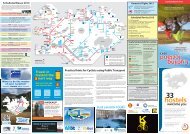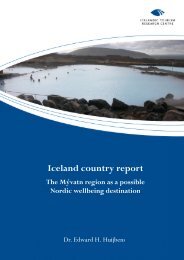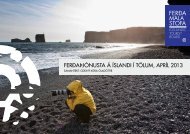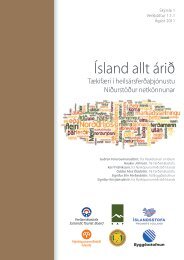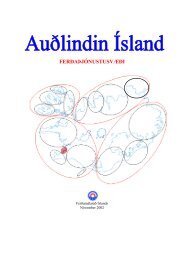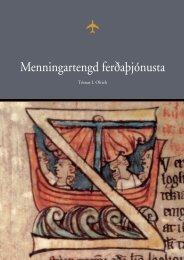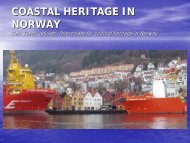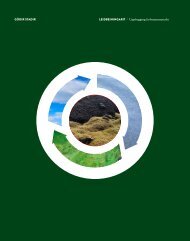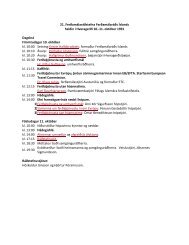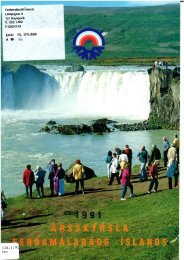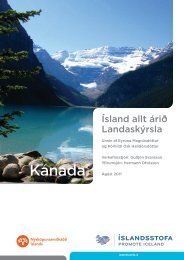Untitled
Untitled
Untitled
Create successful ePaper yourself
Turn your PDF publications into a flip-book with our unique Google optimized e-Paper software.
y observations it should not be considered or evaluated on the basis of<br />
being “true” or “false” in any simple way. To this we may add that the<br />
meaning and use of theory may not be the same in all areas of science.<br />
Although tourism studies are generally regarded as a social science, one<br />
will in social science, as well as in tourism studies, find several approaches<br />
to theory.<br />
At the most general level a theory is an indispensable conceptual<br />
toolbox for understanding and explaining something. In more formal terms<br />
one will find in any theory two sets of statements. The first set expresses<br />
what kind of phenomena the theory is dealing with and the second set<br />
stipulates how matters are related to each other. Hence, in tourism theory<br />
there are statements about what tourism and tourists are, and statements<br />
that articulate how they are related to other things, that is, what factors<br />
influence or “causes” them and thus how they may be understood and<br />
explained.<br />
In the first set of statements one will find definitions that articulate<br />
and specify what the essential characteristics of tourism and tourists are,<br />
which means that they are simultaneously differentiated from other related<br />
phenomena. Definitions are not only important but necessary in order to<br />
distinguish something to study. If we consider how tourism actually has<br />
been defined we will notice first of all its close affinity with travel. Indeed,<br />
there has even often been a tendency to use travel more or less as a<br />
synonym for tourism. For example, in the Dictionary of Travel and<br />
Tourism Terminology one can read that:<br />
The term tourism refers to the phenomena and relationships arising from<br />
the travel and stay of people away from their normal home environments<br />
for a variety of purposes (Beaver 2005, p. 380).<br />
Many introductory accounts of tourism, such as those found in<br />
tourism studies textbooks, are often centred on definitions and there is no<br />
need for us to repeat them in detail here. What is highly important to<br />
recognise is that definitions in science are certainly not given once and for<br />
all; they are always made in particular theoretical circumstances for<br />
specific reasons. Most concepts that are used in science have a range of<br />
possible meanings and that “the definition of ‘tourism’ has not yet<br />
stabilized” (Beaver 2005, p. 316) should thus come as no surprise.<br />
How we choose to define has consequence for how we conduct our<br />
research. If we accept a definition of tourism that necessitates travel, then<br />
spending the vacation in ones normal home environment, doing<br />
35



